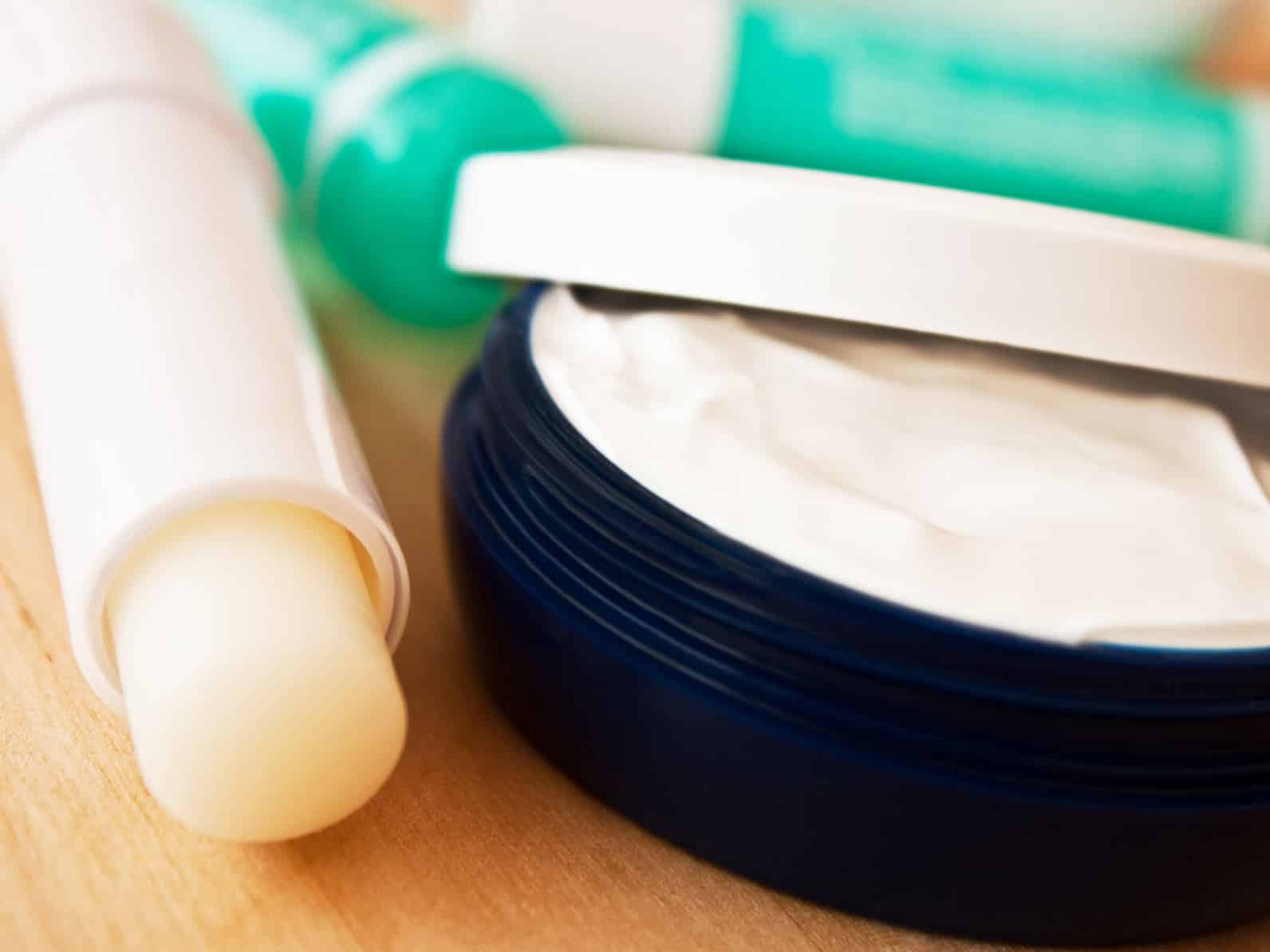Lip care

Nowadays, there are many different lip care products available to consumers. Although the classic stick is still the best known and perhaps most popular method of caring for the lips, there are also creams in jars or tubes, special lip balms and even lip scrubs. Which product is used depends not only on personal preference, but also on the individual requirements of the lips. Lip balms, which are not decorative cosmetics, are very convenient to use and fit in every handbag. Depending on the variant, they sometimes have a hint of colour and shine, but primarily achieve a nourishing effect by making the lips soft and supple. There are fruit-flavoured lipsticks and those that contain a sun protection factor. Generally speaking, sticks are somewhat firmer than tube and tin products due to their higher wax content. They provide a thick, protective film on the lips within seconds and also last relatively long.
Lip balm, on the other hand, is a special care product designed primarily for use on chapped lips. It is usually sold in jars or tubes. Lip balm often contains essential oils that promote regeneration and at the same time protect the lips from drying out.
Another lip care product is the lip scrub. It contains tiny particles that have been added to a moisturising base formula. These particles often consist of ground apricot kernels, so they are of natural origin. Fine pieces of sugar can also be used, which dissolve during application and give a sweet flavour. Unlike balm and lip balm, a lip scrub should only be used about once a week and not daily. It is applied to the lips with gentle circular movements and removes dead skin cells. The lips then appear much rosier, more vital and smoother.
Why good lip care is so important
Many people, regardless of age and gender, struggle with dry and chapped lips, and not just in winter. While air conditioning is the main cause in summer, heating in particular removes important moisture from the air during the cold season. In addition, there are no sebaceous glands on the lips, which means that the skin’s natural protective layer of oil is no longer available. Many sufferers then tend to moisten their lips more or less unconsciously with their tongue.
With fatal consequences: Saliva contains a certain enzyme that breaks down fats. This only makes the lips drier. In the worst case, they can even crack, causing a painful burning sensation and sometimes even slight bleeding. Only fats contained in high-quality lip care products can therefore help against dry and chapped lips.
Lip care sticks are a good solution for minor problems, but in more serious cases, highly effective creams and ointments containing milking fat, Vaseline or marigold ointment, for example, should be used. Contrary to many rumours, the use of lip balm sticks is by no means addictive. Quite the opposite: if your lips are very rough, you should repeat the treatment with lip care products several times throughout the day.
However, lip care in tubes helps best in an emergency, as the application of the velvety-soft texture creates a particularly intensive protective layer on the lips and thus effectively supports healing. A soft balm or a fragrant lip butter is gentler and more gentle on chapped and heavily stressed lips than a firmer stick.
High-quality raw materials are crucial
Regardless of the product, lip care should of course always contain high-quality and safe ingredients. Mineral oils, for example, are considered questionable ingredients. The aromatic hydrocarbons contained in mineral oils, often abbreviated to MOAH (“Mineral Oil Aromatic Hydrocarbons”), and the saturated hydrocarbons, abbreviated to MOSH (“Mineral Oil Saturated Hydrocarbons”), are said to build up in the human body. Both substances have been suspected of accumulating in the body for some time. Despite the risk assessment by renowned institutes, the use of mineral oils in lip care is still permitted by law, as the substances are considered relatively harmless if they are absorbed by the body via the lips. We at Cosmacon are also less critical when excellent quality medicinal white oils and hydrogenated waxes are used (as in pharmaceutical ointments and creams).
Vegan raw materials for lip care
But which ingredients are among the “good” ones in lip care? Shea butter, jojoba oil, vitamin E, avocado oil, aloe vera extract, sea buckthorn extract and sunflower oil are undoubtedly among them. Those who also prefer vegan lip care products can opt for lip balms or creams with berry wax. It is extracted from the fruit skin of the lacquered sumac and has both a consistency-giving and moisturising effect. Berry wax is often used as a substitute for beeswax, but is somewhat lighter and less film-forming. Other recommended and vegan ingredients are coconut oil, safflower oil, meadowfoam oil and almond oil.
Incidentally, men also need regular lip care. Although these should ideally be colourless and odourless products, the choice of active lip care ingredients is the same.
Jojoba oil profile
INCI: Simmondsia Chinensis Seed Oil
CAS number: 61789-91-1
Definition: liquid wax
Effect: nourishing and smoothing, ideal as lip care
Vitamin E profile
INCI: Tocopherol
CAS number: 10191-41-0
Definition: yellow to brown liquid
Effect: antioxidant, inhibits oxidation processes caused by oxygen, radical scavenger
Berry wax profile
INCI: Rhus Verniciflua (Peel) Cera
CAS number: 225234-38-8
Definition: waxy
Effect: consistency-giving, moisturising and emulsifying effect
Lip care from Cosmacon
Lip care should be safe and effective. Good lip care products can make chapped lips soft and supple and promote the healing of chapped lips. Cosmacon develops customised, innovative solutions that are both effective and gentle. Please feel free to ask us…